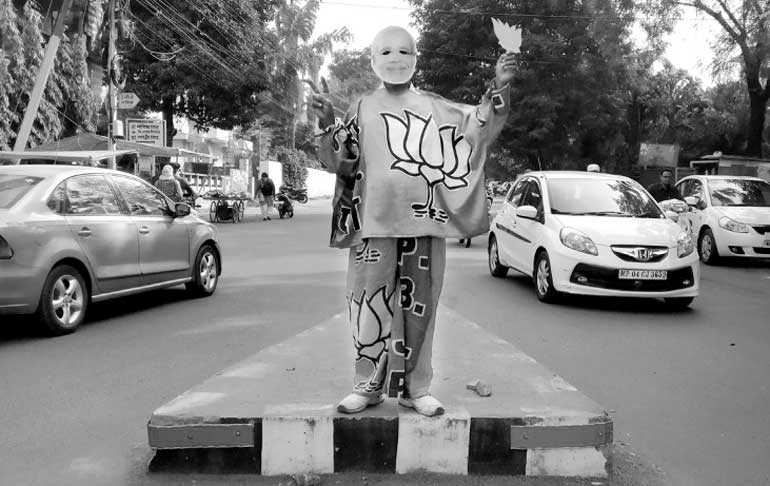Tuesday Feb 24, 2026
Tuesday Feb 24, 2026
Saturday, 26 January 2019 00:10 - - {{hitsCtrl.values.hits}}

NEW DELHI (Reuters): Indian government ministers facing an election in coming months launched a social media campaign on Thursday trumpeting successes in creating jobs just weeks after a leading think tank reported 11 million jobs were lost in the country last year.
The independent Centre for Monitoring Indian Economy (CMIE) had estimated that 83 percent of the job losses occurred in rural areas, where two-thirds of the population lives, and its study put unemployment at a 15-month high in December.
The dismal findings would be damaging for Prime Minister Narendra Modi, whose Hindu nationalist Bharatiya Janata Party (BJP) swept to power in 2014 promising an economy that would grow fast enough to create jobs for the millions of young Indians joining the labour force each year.
Girding for a general election that must be held by May, members of Modi’s cabinet seized on data from a private recruitment agency to present a more rosy picture of the job market.
“Proving pessimists wrong, India has seen growth in hiring trend under the leadership of Shri Narendra Modi,” cabinet minister Harsh Vardhan said on social network Twitter.
He was just one of several ministers to cite data from jobs portal Naukri.com, which showed hiring activity in December was 8% higher than a year ago, based on job listings added to the site.
According to Naukri, the information technology and software industry recorded the most hiring, along with construction and engineering – sectors that are all largely concentrated in urban areas.
Reuters telephoned and e-mailed an official of the portal’s owner, Info Edge (India) Ltd. for comment, but received no response.
A senior leader from the main opposition Congress party dismissed the hiring trends publicised by the BJP as “another jumla”, using a colloquial word meaning “false promise”.
“There are some signs of investment revival in certain sectors, and therefore it’s entirely possible that demand for jobs in those sectors will be rising,” said Amitabh Dubey, a political analyst with consultancy TS Lombard.
“The important point politically is that it’s the lower-end jobs that matter, because that is where the job destruction had happened since demonetisation,” he said, referring to the government’s overnight removal of high value bank notes from circulation in late 2016 in a bid to curtail the shadow economy and criminal activity.
“It’s not clear that Naukri.com would be picking up what’s happening at that level,” Dubey said.